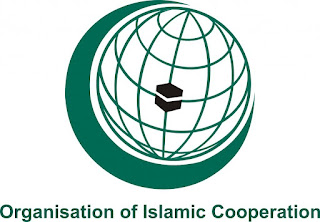Is there a looming breakdown of global halal agri-food supply chains?
The growth of the halal industry
Various reports on the status of the halal industry show a continuous upwards trend of the halal industry as the demand for halal products is increasing. Key drivers behind the halal industry are the Muslim population demographics, growth of per capita income in Muslim (majority) countries, as well as growth of per capita income from Muslims in non-Muslim countries. Furthermore, we see new products and services being halal certified, expanding today’s halal industry far beyond food products only. This fast growing industry has been well received by both the Muslim world and non-Muslim countries serving these fast growing halal markets with in some cases even double digit growth figures.
The problem
The world is going through more than just turbulent times, with what I would describe as a toxic cocktail of covid-19 lockdowns & related measures, rising inflation, an energy crisis in Europe, and global climate change measures reducing agriculture production by leading agriculture exporting countries. The result of this toxic cocktail is an unfortunate reduction in global agri-food production, export, and rapidly increasing agri-food commodity prices. The Muslim world and its food supply chains are highly dependent on imports, more specifically of imports from non-OIC countries. The Muslim world and its halal food industry have put itself in a very vulnerable position by its agri-food supply chain design. The Muslim world needs to redesign its supply chains urgently in order to avoid a total breakdown of its halal agri-food supply chains. The bottleneck of the halal industry and its halal food supply chains is certainly not its global demand, but simply its agriculture production and processing into raw materials, ingredients, and additives!
What needs to be done?
The Muslim world needs to remove its dependence on imports for its halal agri-food supply chains! It needs to boost agri-food production through the creation of complete agri-food production clusters in OIC-countries and create cluster linkages with other halal clusters locally, regionally, and globally in order to create halal synergies.
In my book ‘Halal Business Management: a guide to achieving halal excellence’ I discuss the topic of halal clusters. A halal cluster is a complete halal ecosystem, a geographical concentration of interconnected companies and institutions in a particular halal industry. The halal cluster facilitates collaboration within a brand owner supply chain (from farm to retail) as well as collaboration with other halal supply chain networks (maybe even traditional competitors). Halal clusters need to leverage collaboration with other halal clusters locally, regionally and globally to supply main materials, ingredients, and additives as well as facilitate distribution of end products to Muslim markets. Instead of economies of scale and economies of scope, halal clusters need to address sustainability by looking at creating what I call ‘economies of chains’, where agri-food supply chains are linked to other ecologically fitting supply chains and clusters that increase the business value significantly. For example, by combining the coffee chain with the mushroom and animal feed chains, you can triple or quadruple the economic value of coffee. These strategies also contribute to a reduction of the carbon footprint of halal agri-food supply chains.
Government incentives are urgently needed to develop these halal clusters and attract (read: move) upstream and downstream agri-food supply chain players as well as service industries into these halal clusters. However, current halal parks are often not designed as halal clusters, offering insufficient halal synergy. Therefore, existing halal parks need to be upgraded to become complete halal ecosystems, clusters, that can effectively contribute in redesigning halal agri-food supply chains in Muslim (majority) countries. Coordinated efforts between government, farmers, food industries (SMEs and large players), halal industrial park developers, financial institutions, and supply chain experts is urgently needed to avoid a breakdown of halal agri-food supply chains in OIC countries.
About the Author
Dr. Marco Tieman is the CEO of LBB International, a supply chain strategy consultancy and research firm, advising companies and governments on halal production, clusters, supply chain management, and risk and reputation management. He is also a Senior Fellow with IPMI International Business School in Indonesia and a Research Fellow with University of Malaya Halal Research Centre in Malaysia, conducting research on halal procurement strategy, halal supply chain management, and halal risk and reputation management. He is the author of ‘Halal business management: a guide to achieving halal excellence’.
The article was published on Thursday 8 September 2022 in HalalFocus.
#covid19 #covid #crisis #halalfood #agrifood #agriculture #islam #islamicfinance #halal #halalbusiness #climatechange


Comments
Post a Comment